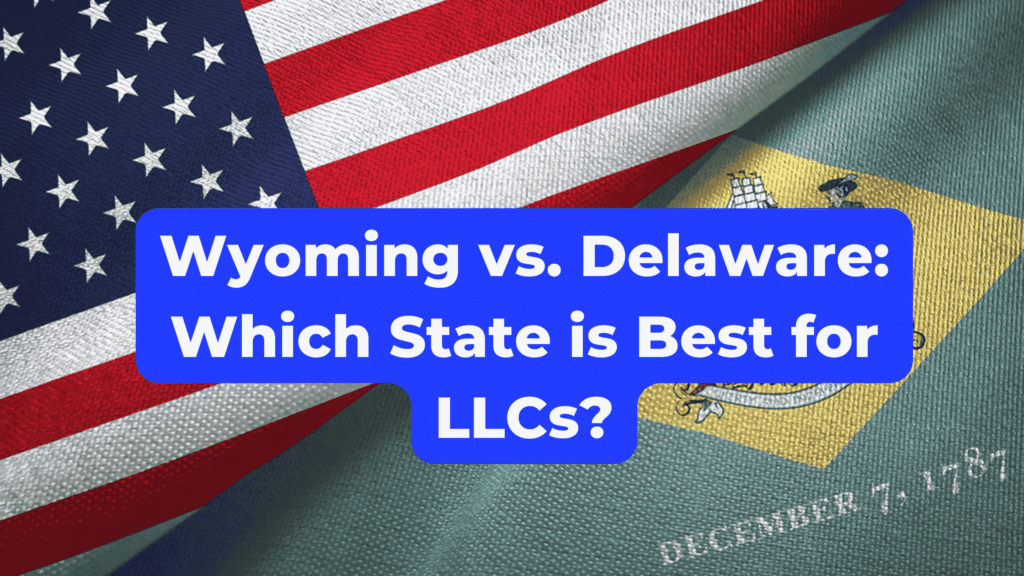For entrepreneurs across the globe, the United States represents a vast consumer market, a deep pool of investors, and a well-defined legal framework that protects intellectual property. The country’s reputation for innovation continues to attract founders who want to scale quickly and access top talent. In addition, U.S. consumers tend to adopt new digital products rapidly, offering immediate feedback and revenue potential. Government resources such as the Small Business Administration (https://www.sba.gov) provide free guidance on planning, launching, and managing a company, something few other nations offer at the same scale. Because English is the lingua franca of global commerce, operating from the U.S. opens doors to partners and customers worldwide. Finally, clear corporate structures like LLCs and C-Corps make it straightforward to issue equity, secure funding, and eventually exit through acquisition or IPO.
Why You Need a Physical U.S. Address and Utility Bill
Banks, payment processors, and state agencies all demand proof that your firm truly operates on U.S. soil, and a physical address paired with a recent utility bill remains the gold standard. Know Your Customer (KYC) rules—enforced by bodies such as the Financial Crimes Enforcement Network at https://www.fincen.gov—require institutions to verify business locations to combat fraud and money laundering. When you apply for merchant services with Stripe or PayPal, compliance teams will often flag virtual mailboxes, insisting on a standard street address instead. Likewise, many state licensing boards refuse applications lacking tangible local presence, potentially delaying your ability to sell goods or services. Even the Internal Revenue Service (https://www.irs.gov) may request address documentation when discrepancies appear in tax filings. Beyond satisfying regulators, publishing a real address signals legitimacy to customers who might otherwise hesitate to share payment details. For e-commerce brands, that credibility can translate directly into higher conversion rates and repeat purchases.
Common Obstacles Faced by Non-Resident Entrepreneurs
Securing a residential-style address without relocating is the first major hurdle international founders meet. Traditional mail forwarding providers can forward letters, yet their suites often sit in commercial warehouses that banks reject outright. Setting up utility accounts remotely is even trickier, because electricity or water companies usually require Social Security numbers or prior U.S. credit history. Time-zone differences compound the frustration; calling customer support at 3:00 a.m. local time is hardly sustainable while running a growing startup. Adding to the complexity, each state enforces its own corporate statutes, so documents acceptable in Delaware might fail in California. Entrepreneurs also worry about hidden costs involved in lease agreements or long-term office rentals that far exceed their needs. All of these challenges drain focus from building products, courting investors, and securing first customers, which should be the true priorities.
How Clemta Solves the Address Verification Puzzle
Clemta supplies a Delaware street address that satisfies registered-agent requirements and passes most banking compliance checks. Because the address belongs to a staffed location rather than a locked mailbox, institutions view it as a genuine place of business, not a shell. We also scan and forward mail promptly, ensuring you receive bank PIN letters or state notices in digital format within hours, not weeks. When a utility bill is essential, we guide you through options—such as limited-scope service agreements—that generate acceptable documentation without requiring you to sign a costly long-term lease. Our support team stays updated on policy shifts from major fintech platforms, alerting you before a rule change jeopardizes your account. In addition, Clemta maintains direct relationships with several U.S. banks, enabling smoother introductions and quicker approvals for non-resident founders. The end result is accelerated compliance, so you can open accounts, accept payments, and start selling sooner.
Additional Services That Simplify Your U.S. Expansion
Beyond address verification, Clemta handles every legal and financial milestone that arises while scaling a U.S. venture. We prepare and file articles of organization or incorporation in any state, although Delaware remains the favorite for its flexible corporate law. Our specialists obtain an Employer Identification Number directly from the IRS on your behalf, sparing you weeks of fax exchanges and international calls. To keep your books investor-ready, our accountants reconcile bank feeds, categorize expenses, and produce monthly financial statements compliant with Generally Accepted Accounting Principles. Annual federal and state tax filings are prepared by certified professionals who monitor deductions and credits to minimize liabilities. If you need to protect your brand, we oversee trademark searches and applications with the United States Patent and Trademark Office, ensuring your mark is enforceable nationwide. Finally, should founders lack Social Security numbers, we streamline the Individual Taxpayer Identification Number (ITIN) process so personal returns remain in good standing.
Frequently Asked Questions
Can I use a virtual mailbox instead of a physical street address?
A virtual mailbox can be useful for receiving correspondence, but many banks and payment processors still consider it insufficient for KYC purposes. They typically want evidence that actual business operations occur at a verifiable location, not merely a mail-sorting facility. Clemta’s physical address service is categorized as a real street address, not a P.O. box, giving it higher acceptance among compliance teams. Some founders attempt to combine multiple virtual services to mimic physical presence, yet this often leads to document mismatches and rejection. By starting with an address that meets regulatory standards, you avoid repeat submissions and costly delays. Remember that inconsistent information across documents can trigger enhanced due-diligence reviews that freeze your accounts.
How long does it take to obtain an EIN for my company?
U.S. citizens and residents can typically obtain an EIN within one business day because they are able to apply using their Social Security Number (SSN), which allows the IRS to verify the application quickly. Non-U.S. residents, however, are not eligible to obtain an SSN. As a result, they must apply for an EIN by submitting Form SS-4, the IRS’s official EIN application form. When submitted correctly, the standard processing time is usually around 4 weeks. That said, even minor errors on the SS-4, such as incorrect entity classification, incomplete responsible-party details, or missing signatures, can easily extend the timeline by several additional weeks. At Clemta, our team carefully reviews every field of the SS-4 before submission, including responsible-party information and entity classification. This significantly reduces the risk of rejections and delays. We also closely monitor IRS processing backlogs, which can occur during peak filing seasons, and set realistic expectations accordingly. For international founders, Clemta’s ability to communicate directly with the IRS on your behalf removes the burden of time-zone challenges and long phone queues. Once the EIN is issued, we provide the official IRS confirmation letter, which most banks require as part of their onboarding process. Beyond banking, a valid EIN is essential for payroll setup, tax filings, and applying for certain licenses, making it a critical step in establishing and operating a U.S. business.
Do I still need a U.S. bank account if I already operate with international fintechs?
Operating solely through offshore or international fintech platforms can limit your ability to serve U.S. customers and accept domestic ACH payments. Many enterprise clients, especially in B2B sectors, insist on paying invoices from one U.S. bank to another for convenience and lower fees. Additionally, maintaining revenue inside the U.S. simplifies tax reporting by keeping gross receipts within a single jurisdiction. Some card processors offer better interchange rates when settlement occurs in U.S. dollars to a domestic account, improving your margins. Holding funds stateside may also enhance credibility with venture capitalists who prefer familiar banking partners and faster wire transfers during funding rounds. Finally, a U.S. account provides straightforward access to services such as SBA disaster relief loans or state-level grants that disburse only to domestic institutions.
What happens if I fail to maintain a registered agent?
Every state requires companies to designate a registered agent to receive legal service of process and government correspondence. If your agent resigns or you let the appointment lapse, the Secretary of State can administratively dissolve your company, stripping it of good standing. Dissolution can trigger bank account closures and void limited-liability protections, exposing owners to personal lawsuits. Reinstatement often involves penalty fees, back-filing annual reports, and, in some cases, court orders. By retaining Clemta as your long-term registered agent, you eliminate the risk of missing critical compliance deadlines. We send automatic reminders for franchise taxes and annual filings, ensuring your entity remains active and protected under state law. Continuous representation also assures investors and partners that your company is professionally managed.







